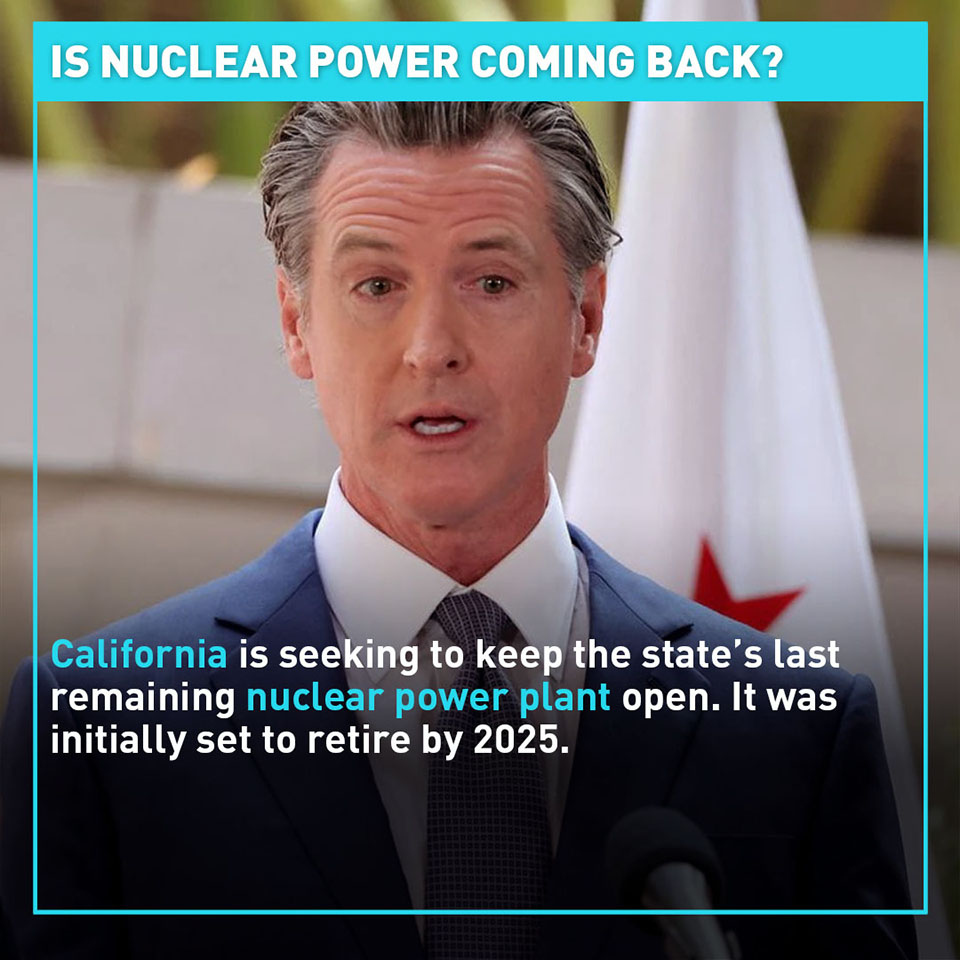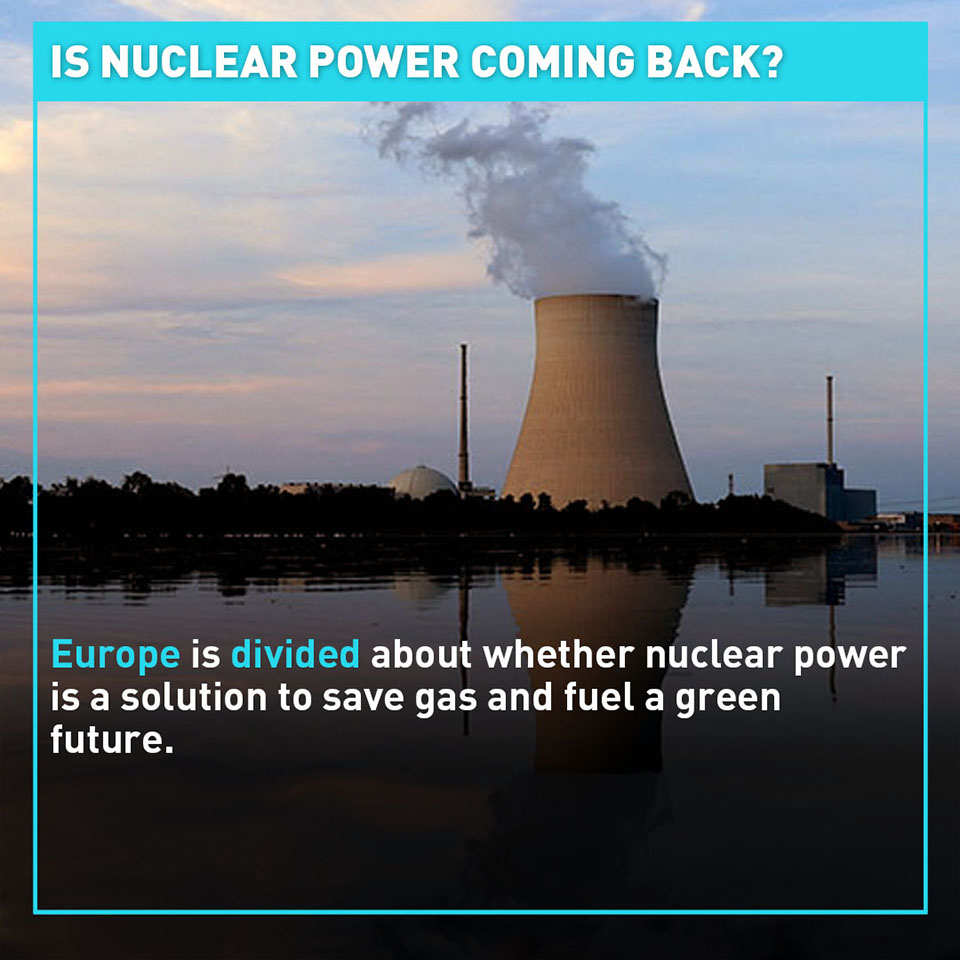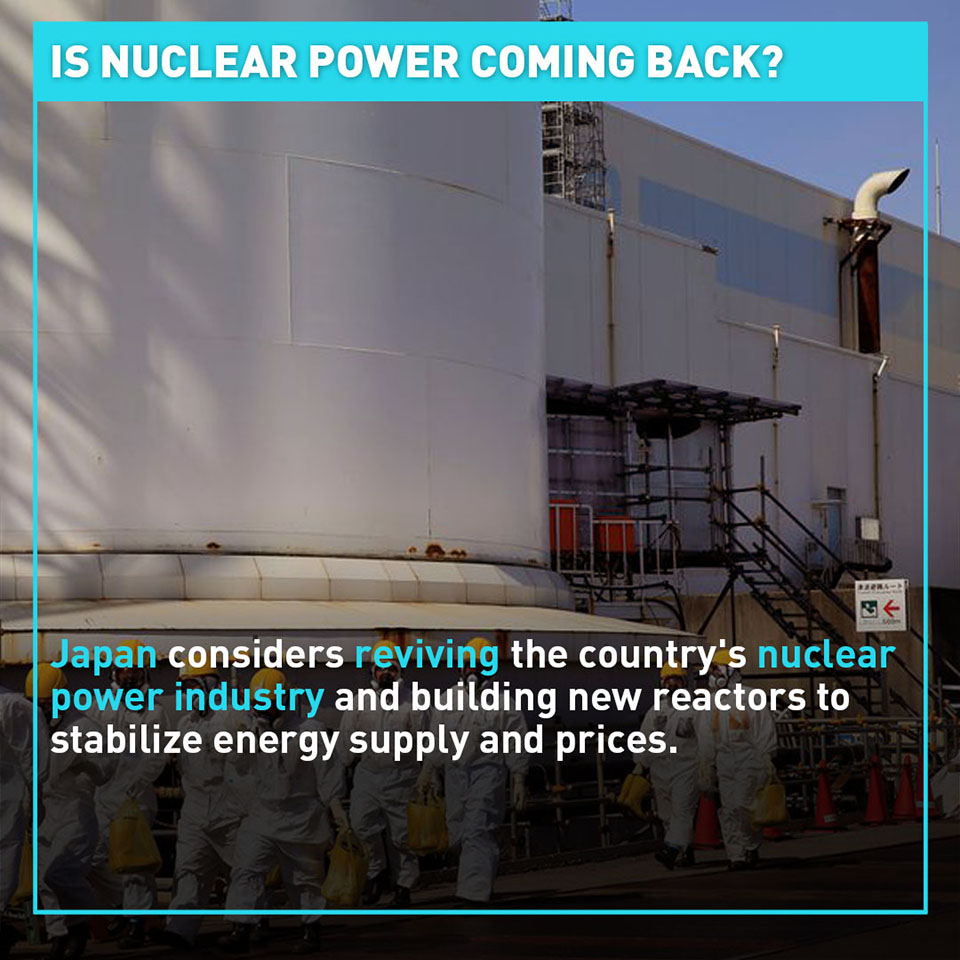Many countries have seen declining investments in nuclear power and accelerated retirements of nuclear plants due to safety concerns after Japan's 2011 Fukushima nuclear disaster.
However, a combination of decarbonization, rising energy costs and energy supply challenges have pushed governments to rethink nuclear power.
At the start of 2022, nuclear energy provided around 10% of the world's electricity from about 440 power reactors in 32 countries, according to the International Atomic Energy Agency. As the world's second largest source of low-carbon power, nuclear power along with hydropower provide three-quarters of global low-carbon generation.
The U.S. state of California is now considering extending the lifespan of Diablo Canyon, the state's last remaining nuclear power plant, through at least 2029.
Governor Gavin Newsom, a longtime supporter of closing the plant by 2025, now emphasizes the "unprecedented stress" in the state's energy supply and has introduced a bill to keep the plant open. Diablo Canyon provides about nine percent of the entire state's electricity.

In recent years, severe droughts have threatened hydroelectric power supplies in the state, and supply chain issues have also postponed wind and solar projects. Surging electricity demand amid a prolonged heat wave in California has strained the current electrical system.
Researchers from MIT and Stanford point out the most important reason for the state to keep the nuclear plant running is to help ensure the reliability of the power grid while keeping emissions low. The study found that keeping the plant open until 2035 would cut carbon emissions from California's power sector by more than 10 percent and save $2.6 billion in electricity costs.
Opponents are concerned about the plant's safety and its harm to coastal waters. They argue that in 2008, a fault was discovered extremely close to one Diablo Canyon nuclear power reactor. The plant may be vulnerable to earthquakes. Additionally, Diablo Canyon filters 11.3 billion liters (2.5 billion gallons) of ocean water through its cooling system every day and then dumps it back in the ocean, which scientists say is killing millions of sea creatures each year.

In Europe, the Ukraine crisis has driven up energy prices. Many European countries are pushing hard to replace Russian gas.
Belgium has worked out a deal with energy provider Engie to extend the lifespan of two nuclear reactors by 10 years. The two reactors were expected to shut down in 2025.
Britain, France, Poland and the Netherlands have also expressed ambitions to develop nuclear infrastructure, since it offers an alternative to coal.
Germany has been hit hard by EU sanctions on Russian gas, as it imports a huge amount of its natural gas supply from Russia.
Germany's last three remaining nuclear power plants are scheduled to be retired by the end of this year. However, in late July, Chancellor Olaf Scholz signaled his government wanted to wait for the results of a comprehensive "stress test" before deciding whether to stick with the phaseout.
However, some German officials, including Economy Minister Robert Habeck, have pushed back against the idea of keeping their nuclear power plants open in order to save gas, saying that it would save at most 2% of gas use.

To stabilize energy supply and prices, Japan's Prime Minister Fumio Kishida recently called for a push to restart some of the country's nuclear plants, many of which have sat idle since the Fukushima nuclear disaster in 2011. He also said the country is looking at the option of building new next-generation reactors, with the goal of having them operational by the 2030s.
Nuclear power has been promoted as an important decarbonization option.
The balance between securing energy supplies and maintaining the targets of carbon neutrality by 2050 could be increasingly challenging for Japan during a global energy crisis, Nobuo Tanaka, a former executive director of the International Energy Agency said.
For more, check out our exclusive content on CGTN Now and subscribe to our weekly newsletter, The China Report.

